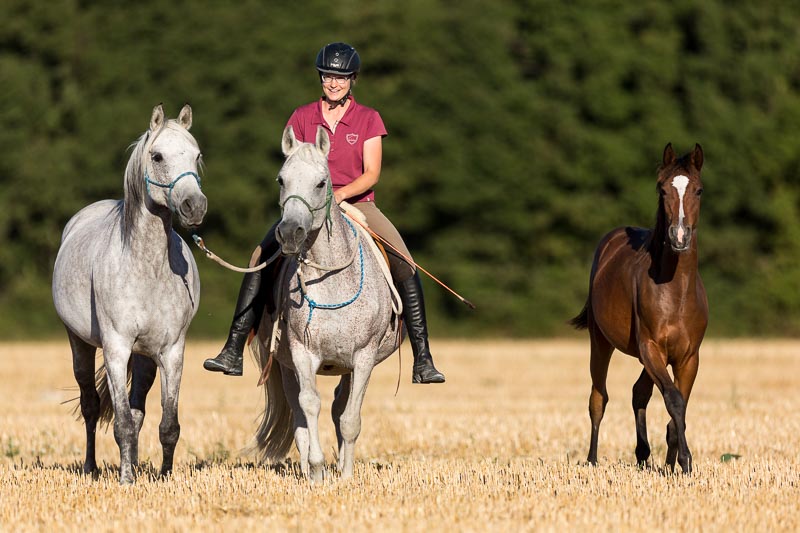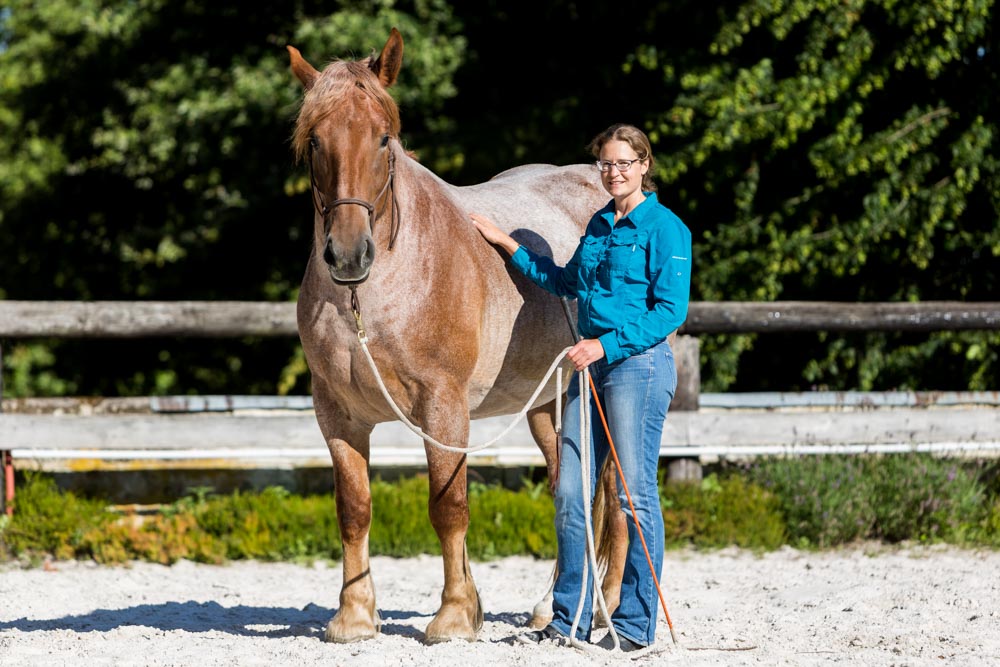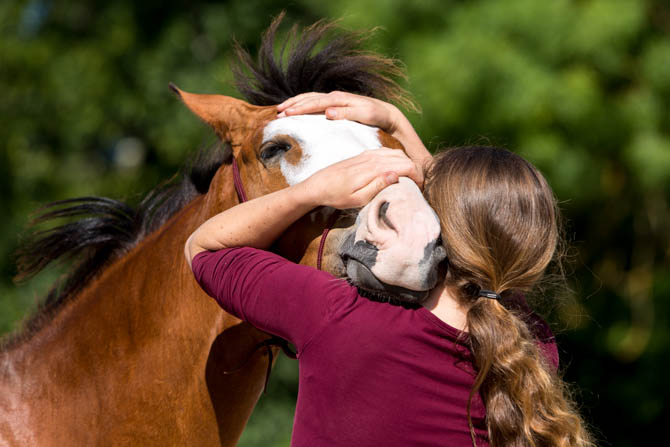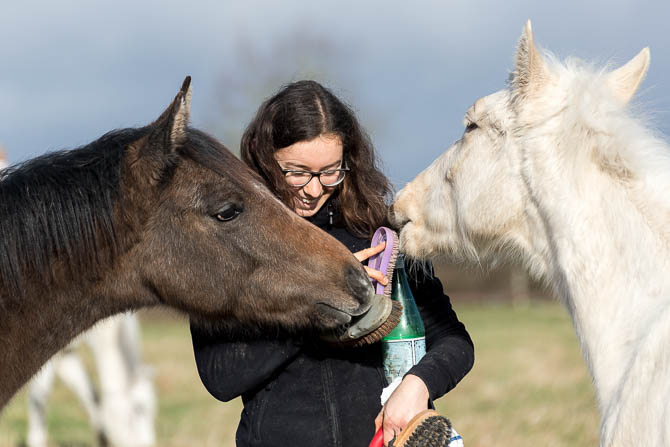Loving Boundaries For Young Horses
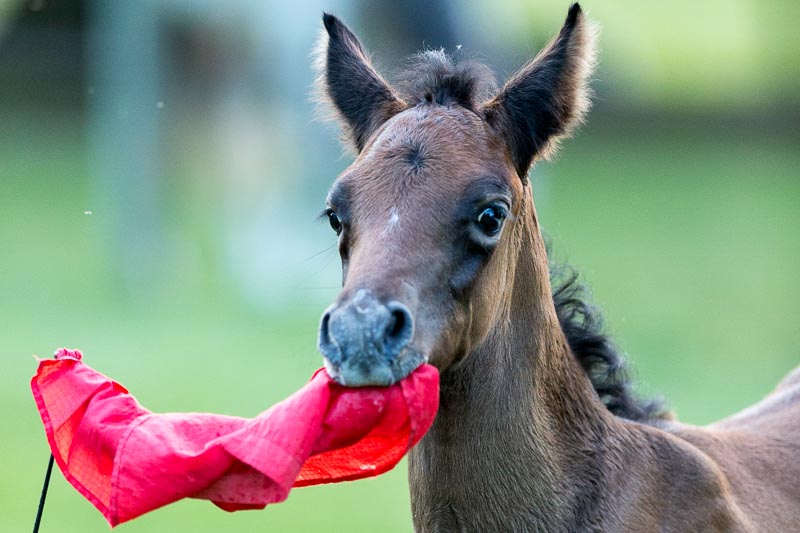
Whenever I set a limit, my motivation behind is always the love for my horse. I want my horse to be able to live comfortably in our human's world.
I want it to be easy for my horse to deal with all the constrictions that come with living in our world.
Loving a horse doesn’t mean that I let him do whatever he wants to do.
Loving my horse means most importantly to ensure his long-term safety and happiness.
I don’t let limits to please my ego or to show what fancy tricks my horse can do or to simply make my horse “obey” me no matter what.
Here are 6 guidelines to always keep in mind when it comes to setting boundaries for our horses.
I give the short version for you here, you can find the rest by following the link to my blog.
The length of the text is too much for a simple post here of f.book.Setting.
1. Limits don’t necessarily mean Punishment, yelling, yanking, spanking or being violent
Big corrections will only become necessary if you ignore your inner voice or feeling of being unsafe when your horse oversteps a limit too often.
If you learn to speak up and let your horse know quietly as soon as you feel this little voice, you will find yourself having to do a lot less.
Corrections will reduce to a little raising of the hand to block the nose or a little quiet “Hey”.
Learn to do less sooner before you have to do more later:
If you see this from the horse's point of view, it would look like this. Your horse repeatedly passed a little limit, you felt this little uneasy feeling already quite a few times.
Each time your horse passed the limit a little more and with more certainty.
Because you didn’t give feedback that actually you don’t like this behaviour.
So the longer you think your horse is doing something wrong, but you don’t tell your horse, the longer your horse thinks that what he does is ok and good.
Especially if the behaviour made his life better (pulling you to a nice patch of grass….)
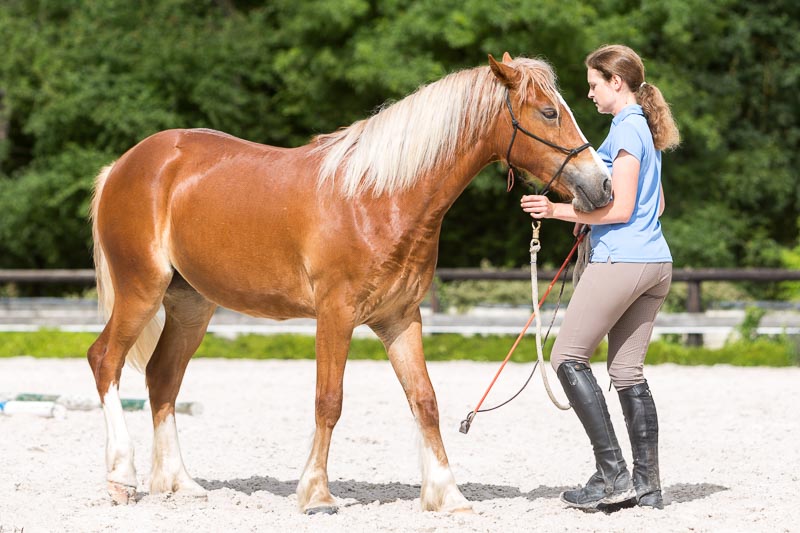
2. Setting Limits doesn’t mean that my horse isn’t allowed to express himself anymore.
I want my horses to let me know when they are afraid, saw something or what mood they are in.
I will look for the reason why my horse spooked, why my horse doesn’t stand still today.
Then I will see what I can do to change the situation that my horse can be confident and accepts to stand still.
And I will think about how I can help him to be less afraid, more motivated or more trusting that he can do what I ask him to do.
Because maybe it was me and the way I set up the situation that caused my horse to “misbehave”.
Still, he can’t run over me….
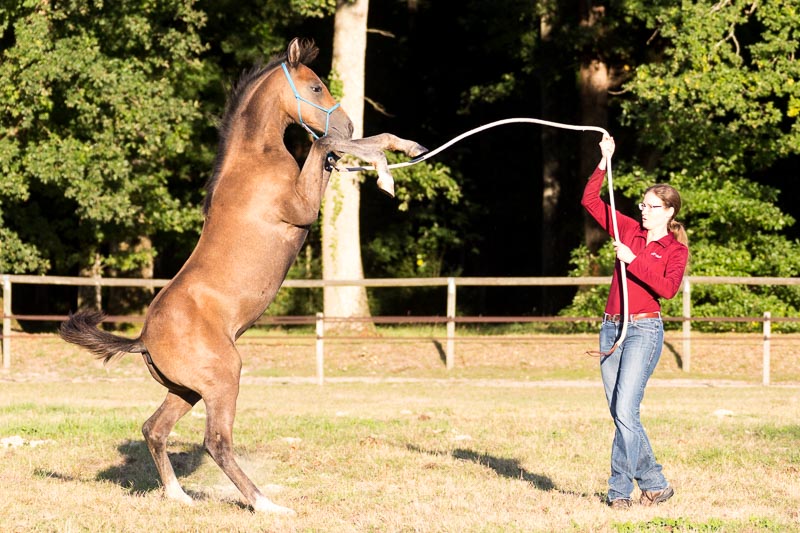
3. Setting Limits and saying NO also means that I teach my horse first want I actually expect of him
It is our responsibility to educate our horses to be able to deal with humans world and all the restrictions that come with it.
Always be one step ahead: teach your horse to accept the clipper before the vet has to use it, teach your horse to stand at the mounting block before the first ride, teach your horse to trailer load before the emergency.
Most unwanted behaviours only happen, because our horse doesn’t know how to behave differently.
There is no use to punish a horse for being afraid of the spray bottle and say: “He should know this, he is just acting like a clown!”
And until I taught my horse all of this, he still can’t pull me around on the lead rope.
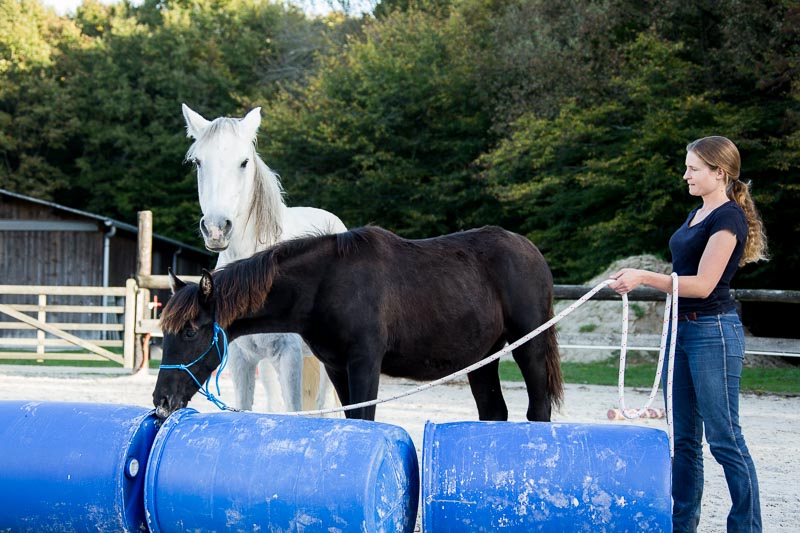
4. Limits are for each others safety - because humans are breakable and a horse weighs 500 kg
Horses are very well aware of the notion to be polite and not to invade another, higher ranking, horses space - not even in moments of fear.
I just witnessed that fact again yesterday evening when my 3-year-old Tara got afraid and wanted to run blindly out of the stables.
She was about to run into her adoptive mother Mazirah - she squeaked and defended her space by threatening to kick.
Tara immediately stopped and changed course.
Yes, Mazirah used positive punishment (the scientific term for learning technique) to correct Tara running on top of her in a moment of fear.
She didn’t move out of Tara’s way.
Tara accepted without fear and still sees Mazirah as her point of reference when she is afraid, looking for safety.
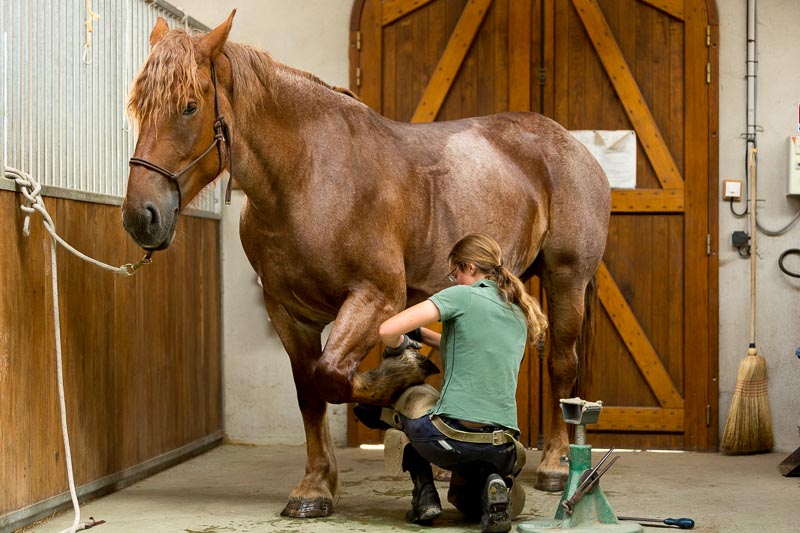
5. In our way of acting and being with horses, we should always make sure to not trigger prey animal instincts in our horses.
A horse acting in instinctive mode will show all kind of “unpleasant” behaviours.
Then it is obviously just about “damage-control”.
Fact is, your horse can’t learn and can’t think in this mode.
We have to understand fully our horse's prey-animal nature and what triggers it.
How we can set up the situation to trigger it at least as possible and teach our horse to be able to think his way through situations that normally trigger prey-animal behaviour.
Every horse has two faces: The nice one we love and appreciate, and the crazy nutcase who does things we don’t understand.
The question is: which one do you nourish every day?
And you can’t blame a horse for acting the way nature designed him - but he still can’t run all over you.
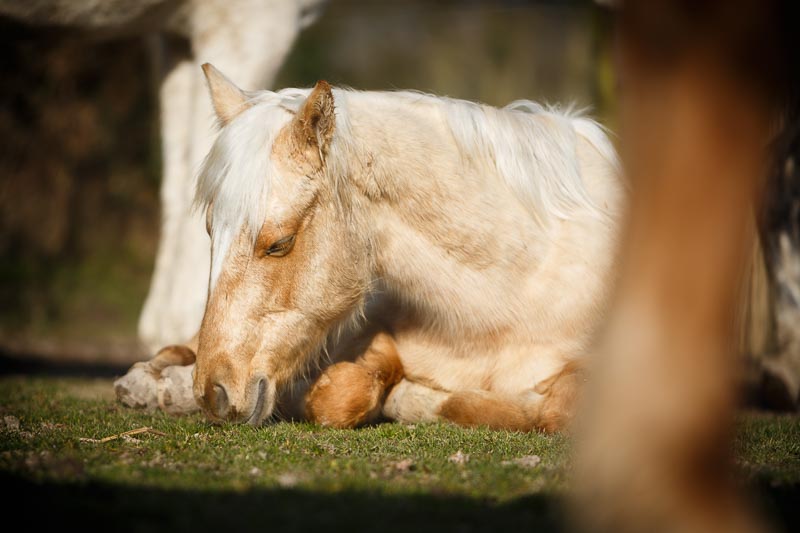
6. Setting limits doesn’t exclude reward and saying thank you - these should be a lot more present in our daily time with horses.
And finally: get the habit of saying thank you to your horse for every nice thing you see or feel.
Even right after a correction - thank you for accepting the no.
Even if it is just “normal” everyday good behaviour like giving the feet nicely or standing patiently at the mounting block.
Or putting the head in the halter.
Or walking next to you connected and calm.
Say thank you, be appreciative and your horse will thank you with showing more good will.
But be the first one who is clear, polite and appreciative in your relationship.
When it comes to setting limits, I learn a lot when observing a mother and her foal or older mares with youngsters.
It is amazing how they manage to install good manners and this notion of interacting politely into naughty kids and teenagers.

Let’s have a look how a mare insists on politeness with her foal:
It was very interesting to observe my own mare Mazirah when she had her foal Maserati almost two years ago.
During the first weeks, Mazirah was quite tolerant with little Maserati.
She didn’t even say much when he accidentally kicked her or ran into her - she would just stand her ground or give him a little nudge with her head.
As Maserati got older though, she started to be stricter with him, especially when nursing.
He had to be polite and careful, otherwise, she would bite his butt.
When he was behaving very rude, she would even kick him. (oh yes, that sounds a lot like positive punishment P+)
Like this, he learned to say please and thank you.
Mazirah never acted aggressively or mean to him, but got her point across effectively and with the required firmness.
She never lost her temper when she had to repeat herself over and over.
The way she corrected him was also worth taking note off: before she got physical, she always gave a vocal warning!
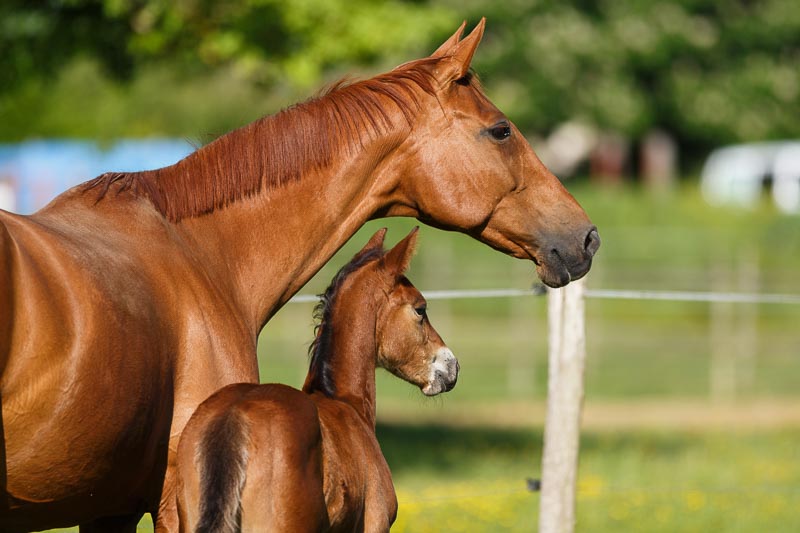
We have this one special lead mare in a herd where we like to integrate weanlings or yearlings.
All the foals magically seemed to respect her without being afraid.
The foals would sometimes playfully nip or kick others but they never tried to do it with her.
She had this incredible presence; she didn’t need to assert herself in a physical way.
Although I knew she would if necessary.
I have seen her do it many times with adult horses.
She behaved calm, sovereign and sure of herself.
She definitely knew exactly how she would like the foals to behave around her.
And she would express her limits right away by some little sign (pinning the ears, pointing the nose or swishing the tail) as soon as she felt necessary.
When we observe nature, it seems that we have to adopt three things:
- Know what we want with a quiet and self-assured presence
- Communicate right away
- A firm and friendly attitude when we have to assert rules
- to warn verbally before correcting physically
Where do “natural presence” and self-assurance come from?
First of all, you need to gain clarity about the social rules you would like your foal/horse to maintain when with you.
Don’t let anyone tell you what to allow your foal to do and what not.
Free yourself of other people’s opinion and their shoulds and shouldn’t s.
You have to truly own them - they have to come from you.
What you don’t own, you will have a hard time to stick to consistently.
Then listen to yourself:
What feels right to you?
What behaviour of your foal makes you feel irritated or unsafe?
As soon as you feel bothered or just slightly unsafe, this is a boundary you should hold up.
Or just imagine your foal is fully grown and displays a certain behaviour: would it still be cute?
Why do we sometimes have to correct so strong?
Big corrections will only become necessary if you ignore this little feeling, this little voice inside of you for too often.
If you learn to speak up and let your horse know quietly as soon as you feel this little voice, you will find yourself doing a lot less.
Corrections will reduce to a little raising of the hand to block the nose or a little quiet “Hey”.
Learn to do less sooner before you have to do more later.
If you see this from the horses' point of view, it would look like this:
Your horse repeatedly passed a little limit, you felt this little uneasy feeling already quite a few times.
Each time your horse passed the limit more and with more certainty.
Because you didn’t give feedback that, actually you don’t like this behaviour.
So, the longer you think your horse is doing something wrong, but you don’t tell your horse, the longer your horse thinks that what he does is ok and good.
Especially if the behaviour made his life better (pulling you to a nice patch of grass….)
And the more often you don’t give this feedback and your horse thinks it is ok, the more difficult it will get to change the habit.
Only then big corrections become necessary.
That's not fair, no question
It would be way more fair to be clear and be able to offer that clear frame to our horses from the very first minute we meet them.
But more often than not, we don’t manage, we stand in our own way for whatever reason.
Be the first one who is polite
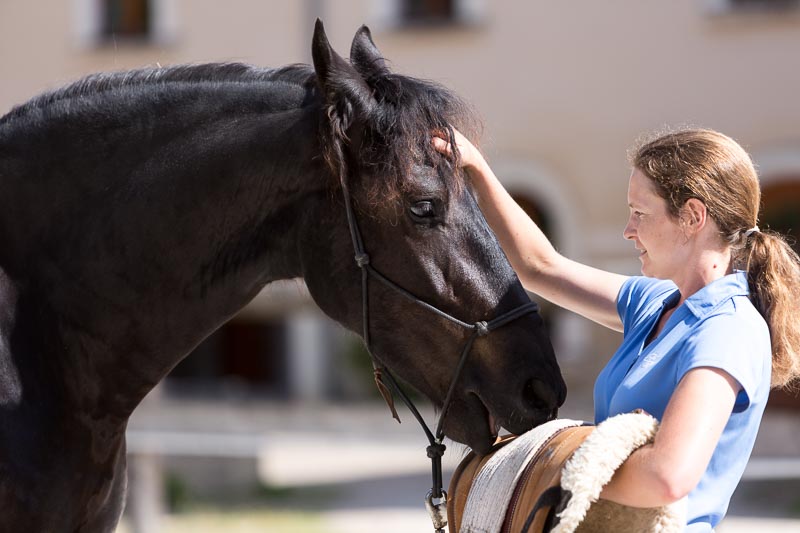
And finally: get the habit of saying thank you to your horse for every nice thing you see or feel.
Even if it is just “normal” everyday good behaviour like giving the feet nicely or standing patiently at the mounting block.
Or putting the head in the halter.
Say thank you, be appreciative and your horse will thank you with showing more good will.
But be the first one who is clear, polite and appreciative in your relationship.
Set loving boundaries out of one motivation: To enable your horse to live comfortably and safely in our humans' world.
Related Article
